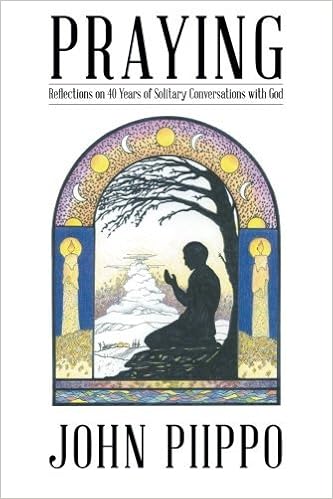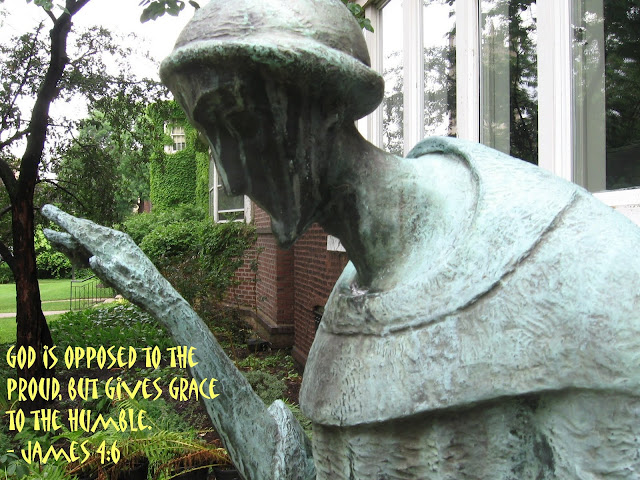 |
| Monroe county |
Whatever happened to "sin?"
If you use the word “sin” in public, some people will view you as a medieval religious crazy person. Like: "Justin Bieber sinned a few days ago." Say that and you'll get accused of being "judgmental."
To which I respond: Chill out, people. “Sin” is just a word. It refers to something very alive and real.
- “Sin” is a word that refers to behaviors and actions that create alienation and isolation.
- “Sin” is a word that refers to choices and non-choices that cause emotions of anger and vengeance and sadness and bitterness and bring tears and loss and grief and cries for justice and so on and on and on…
- If sin wasn’t about something very real and very dangerous and very alienating, half the movies that are made would not be made, and innumerable tweets would be meaningless.
- “Sin” is a big-time reality word. There are not a lot of things more real than the reality of “sin."
- The English word “sin” is just an ancient word that refers to a reality that is still with us.
- Everyone does it. Everyone has it. If you don't have it then you can start throwing stones at the rest of us.
Sin is only meaningful if it has a reference point. The reality of sin evokes the question "In reference to what?" "Sin" falls short of something. Sin doesn't measure up. If there's no reference point then moral outrage is absurd, and "sin" doesn't exist.
Everyone - me and you and you-know-who - has messed up and landed short of the Reference Point.
Sin, writes Francis Spufford, is the Human Propensity to Mess things Up (HPtMtU; except that Spufford uses another word for 'screw').
"For us, it refers to something much more like the human tendency, the human propensity, to [mess] up. Or let’s add one more word: the human propensity to [mess] things up, because what we’re talking about here is not just our tendency to lurch and stumble and screw up by accident, our passive role as agents of entropy. It’s our active inclination to break stuff, “stuff ” here including moods, promises, relationships we care about, and our own well-being and other people’s, as well as material objects whose high gloss positively seems to invite a big fat scratch. Now, I hope, we’re on common ground. In the end, almost everyone recognizes this as one of the truths about themselves."
- Spufford. Unapologetic: Why, Despite Everything, Christianity Can Still Make Surprising Emotional Sense, Kindle Locations 408-413)
When Jesus-followers talk about "sin," it's this sort of thing that we mean. It's a universal human condition, "unless you're someone with a very high threshold of obliviousness." You may not like the word sin. In the meantime, sin marches on.
Here's an example of "sin," from today's New York Times:
"A bomb ripped through a section reserved for women at Cairo’s main Coptic cathedral during Sunday morning Mass, killing at least 25 people and wounding 49, mostly women and children, Egyptian state media said.
The attack was the deadliest against Egypt’s Christian minority in years.
Video from the blast site circulating on social media showed blood-smeared floors and shattered pews among the marble pillars at St. Mark’s Cathedral, the seat of Egypt’s Orthodox Christian church."
This provides an ostensive definition of "sin": By "sin" I mean... (while pointing to that horrific event).
Examples are everywhere and easy to find. You don't have to look far or read about them, or see and experience them for yourself. To find sin up close and personal, look no further than your own self. Spufford writes:
"For most of us the point eventually arrives when, at least for an hour or a day or a season, we find we have to take notice of our HPtMtU. Our appointment with realization often comes at one of the classic moments of adult failure: when a marriage ends, when a career stalls or crumbles, when a relationship fades away with a child seen only on Saturdays, when the supposedly recreational coke habit turns out to be exercising veto powers over every other hope and dream. It need not be dramatic, though. It can equally well just be the drifting into place of one more pleasant, indistinguishable little atom of wasted time, one more morning like all the others, which quietly discloses you to yourself." (Kindle Locations 415-420)
The Christian idea of "sin" is that it is a universal human condition. (All the major world religions believe this, BTW. They just disagree on the cure.) "Sin" is just the particuar word that refers to this universal condition.
Literally, in Greek, to sin is to "miss the mark." The idea of sin is that humanity is off target, spot off. The condition is there; you can refer to it by whatever word you want.
"You can put it as Freud did, and say that there are unconscious processes which resist and subvert conscious intentions. You can think of it in terms of evolutionary biology, in which case one of the best expressions of it is the geneticist Bill Hamilton’s wonderful description of the human animal as “an ambassador sent forth by an unstable coalition.” Or you can quote St Paul: “What I would not, that I do. What I would, that I do not.” Wherever the line is drawn between good and evil, between acceptable and unacceptable, between kind and cruel, between clean and dirty, we’re always going to be voting on both sides of it, despite ourselves. Not all of us, on every subject, all the time, of course; but all of us on some subject or other some of the time.
And this is a state of affairs in the face of which we are, for the most part, currently clueless, toolless, committed to alarmed denial rather than to any more useful or hopeful response."
- Ib., Kindle Locations 472-479
This means me. And you.
The Human Propensity to Mess Things Up is in here, in the heart. Without persons like you and I sin would not even exist.
And it is after your heart. In Genesis 4:7 God warns an angry Cain: “Why are you angry? Why is your face downcast? 7 If you do what is right, will you not be accepted? But if you do not do what is right, sin is crouching at your door; it desires to have you, but you must rule over it.”
Here "sin" is personified. "Sin" functions like a personal agent who wants to infect you with its disease so as to manipulate and control you. (Think of "Gollum" in "The Lord of the Rings.)
These ancient words are so relevant! I am constantly in touch with drug, alcohol, porn, or whatever addicts, who contact me in hopes of rescue. And I am in constant contact with my own self, as well.
When sin takes up residence in a human heart this is called "addiction." It gets "attached" to you (from the French word for sin, attaché ). Addiction (sin) is a "beast." ("Treating the Beast of Addiction") It wants to have you. When it pierces its talons into your skin it digs deep, into heart and mind and soul. Sin captivates, longing to capture your soul.
When this happens, the fun is over.
For a long time.
For some, for a lifetime.
It is easy to empirically verify the existence of sin. "Empirical verifiability" means this: a statement is true (= a certain state of affairs obtains) if that statement is verifiable in principle via the five senses. (Analytic statements, such as A is A, are true analytically; i.e., the predicated state of affairs is contained in the subject.)
Alvin Plantinga, in Knowledge and Christian Belief, writes: "G. K. Chesterton once remarked that of all the doctrines of Christianity, the doctrine of original sin has the strongest claim to "empirical verifiability."" (K1179) Crudely, this means: open your senses and behold how screwed up humanity is.
Plantinga writes: "It has been abundantly verified in the wars, cruelty, and general hatefulness that have characterized human history from its very inception to the present. Indeed, no century has seen more organized hatred, contempt, and cruelty than the late and unlamented twentieth; and none has seen it on as grand a scale." (Ib., K1188)
Add to this people who lived self-reflective lives and have, upon introspection, discovered "seeds of destruction" and "violence within." (Like Augustine, e.g., in his Confessions.) I have. And you would see the same in you, if you routinely subjected yourself to self-examination.
Is religion the cause of sin in the world? No. Religion identifies it, and proposes a cure.
Has our world evolved beyond the sin disease? No. It's worth noting that the cause of most human suffering due to sin has been perpetrated, at least in the 20th century, by atheists. As Plantinga writes elsewhere:
"Of course the world’s religions do indeed have much to repent; still (as has often been pointed out) the suffering, death, and havoc attributable to religious belief and practice pales into utter insignificance beside that due to the atheistic and secular ideologies of the twentieth century alone." (Plantinga, Where the Conflict Really Lies: Science, Religion, and Naturalism . Oxford University Press. Kindle Location 104.)
Thus we can be done with the sophomoric, unstudied idea that sin is the special province of religious people. And we can be rid of the unstudied idea that talking about sin is "old-fashioned" and archaic.
If sin is the human problem, what is the cure? I have some former university students who are scientists researching a cure for cancer. In order to find a cure they must first understand the disease. The more they understand what makes the disease tick, the greater they can understand what could be done to stop it.
The Jesus-claim is that sin is primarily a false orientation of the heart. The biblical metaphorical idea of the human "heart" is that it concerns our orientation, our basic inclination, what we love, what captivates us, what we are captured by, what we most worship in life. Sin is therefore understood as false orientation. Which means:
The cure for sin is reorientation, re-captivation. This explains what the cross of Christ is for, and why it is effective. As Paul writes in Romans 6:13:
13 Do not offer any part of yourself to sin as an instrument of wickedness, but rather offer yourselves to God as those who have been brought from death to life; and offer every part of yourself to him as an instrument of righteousness.
New Testament scholar Scot McKnight writes:
"On the cross, God gave his Son for our salvation, atoning for our sins and restoring our relationship with him. But this is only one aspect of God's work on the cross. Salvation is ultimately about deliverance—from our own sins and from sin in general—so that we can be conformed into the image of Christ." (McKnight is explaining Dallas Willard's theology of the cross.)
On the cross sin was defeated. This established a new possibility for sinful persons. Since sin causes a breach in relationship, Christ's death opened the way (the temple "curtain was torn") into God's very presence. Now, the human heart can decide to orient itself towards Christ. As Romans says, we can "offer every part" of our heart to him.
This is not about some kind of "sin management." It is about relationship orientation, made possible by Christ's death on the cross. The cross allows for a greater, more intimate captivity with God. Now I can become a "slave of Christ."
This is the Jesus-answer to the sin disease and its cure. And, beyond that in this life, we experience ongoing transformation of the human heart into greater and greater Christlikeness and freedom. (Romans 12:1-2; Galatians 4:19)































![The Spiritual Life: Eight Essential Titles by Henri Nouwen by [Nouwen, Henri J. M.]](https://images-na.ssl-images-amazon.com/images/I/51B-hk%2Bn3qL.jpg)






